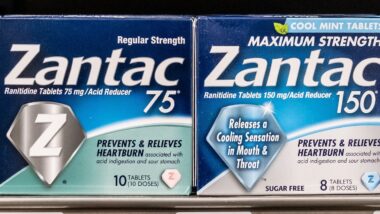 A whistleblower lawsuit filed against ACell Inc., makers of the MicroMatrix wound dressing product, has ended in a guilty plea by the company in the U.S. District Court for the District of Maryland, according to the U.S. Department of Justice (DOJ). The guilty plea concerns one misdemeanor count of failure and refusal to report a medical device removal in violation of the Federal Food Drug and Cosmetic Act (FDCA).
A whistleblower lawsuit filed against ACell Inc., makers of the MicroMatrix wound dressing product, has ended in a guilty plea by the company in the U.S. District Court for the District of Maryland, according to the U.S. Department of Justice (DOJ). The guilty plea concerns one misdemeanor count of failure and refusal to report a medical device removal in violation of the Federal Food Drug and Cosmetic Act (FDCA).
According to the DOJ, ACell attempted to hide the fact that they removed 30,000 MicroMatrix products from the market in 2012 after determining that some of the wound dressing material had been contaminated with excessive amounts of endotoxin. The human body can react to endotoxin by unexplained fever, infection leading up to septic shock, and even death.
As indicated by a woundsource.com, ideally, MicroMatrix is a sterile extracellular mix of collagens derived from pigs which support wound healing. The product removal reasons, in the case of the contaminated versions, were purportedly not explained to physicians, medical centers or even the company’s own salespeople.
Most importantly, the DOJ says, the informal recall and the justification for it was hidden from the FDA. ACell will pay a plea agreement fine of $3 million for this alleged clandestine activity.
ACell’s Settlement
In addition to the guilty plea, the whistleblower lawsuit resulted in an agreement to settle allegations against ACell for submitting false claims against government medical programs for MicroMatrix. The company will pay $12 million to resolve these criminal and civil allegations.
The company’s management, according to the DOJ, worked with its sales force and directed them to present MicroMatrix as a safe and effective device to use for both internal and topical external use. Insurance codes were provided to physicians that were off the mark and allowed for inflated product prices to be charged against Medicare.
This habit continued despite outside consultants advising the organization that the codes were not compliant.
ACell also purportedly engaged in providing kickbacks to health providers that ordered MicroMatrix and other medical products made by them. These kickbacks allegedly came in the form of free products, high-end entertainment vouchers, and similar inducements.
The Whistleblower and His Reward
This lawsuit was originally filed by a former employee of the defendant, John M. John registered his complaint on behalf of the U.S. government in the hopes that they would take up the investigation under the qui tam provision of the False Claims Act (FCA).
The False Claims Act allows citizens of the U.S. to be the eyes and ears of the government by rewarding them for reporting abuses of public medical programs or other government contracts.
The citizens in cases which the government takes up the investigation are known as relators. They are allowed a certain percentage of any funds recovered through DOJ efforts as part of a whistleblower reward. In this situation, John will receive $2,366,004 of the civil part of the settlement.
What is the FDCA?
The FDCA is a grouping of laws passed by the U.S. Congress in the 1930s giving authority to the U.S. Food and Drug Administration (FDA) to control and supervise the safety of food, medications, medical devices, and cosmetics.
Its enactment was spurred by the unfortunate demise of at least 100 U.S. citizens following sulfanilamide drug tainting in 1937. Diethylene glycol (DEG)—a solvent used in the medication’s preparation is lethal to human beings.
In general, whistleblower and qui tam lawsuits are filed individually by each plaintiff and are not class actions. Whistleblowers can only join this investigation if they are reporting fraud against the government, meaning that the government must be the victim, and that the alleged fraud should be a substantial loss of money.
Do YOU have a legal claim? Fill out the form on this page now for a free, immediate, and confidential case evaluation. The attorneys who work with Top Class Actions will contact you if you qualify to let you know if an individual qui tam lawsuit or whistleblower class action lawsuit is best for you. Hurry — statutes of limitations may apply.
This article is not legal advice. It is presented
for informational purposes only.
ATTORNEY ADVERTISING
Top Class Actions is a Proud Member of the American Bar Association
LEGAL INFORMATION IS NOT LEGAL ADVICE
Top Class Actions Legal Statement
©2008 – 2026 Top Class Actions® LLC
Various Trademarks held by their respective owners
This website is not intended for viewing or usage by European Union citizens.
Get Help – It’s Free
Join a Free Whistleblower, Qui Tam Lawsuit Investigation
If you believe that you have witnessed fraud committed against the government, you may have a legal claim. Whistleblowers can only join this investigation if they are reporting fraud against the government, meaning that the government must be the victim, and that the alleged fraud should be a substantial loss of money.
See if you qualify to pursue compensation and join a whistleblower lawsuit investigation by submitting your information for a free case evaluation.
An attorney will contact you if you qualify to discuss the details of your potential case.
PLEASE NOTE: If you want to participate in this investigation, it is imperative that you reply to the law firm if they call or email you. Failing to do so may result in you not getting signed up as a client or getting you dropped as a client.
Oops! We could not locate your form.













One thought on ACell Whistleblower Lawsuit Ends in Guilty Plea, $15 Million Settlement